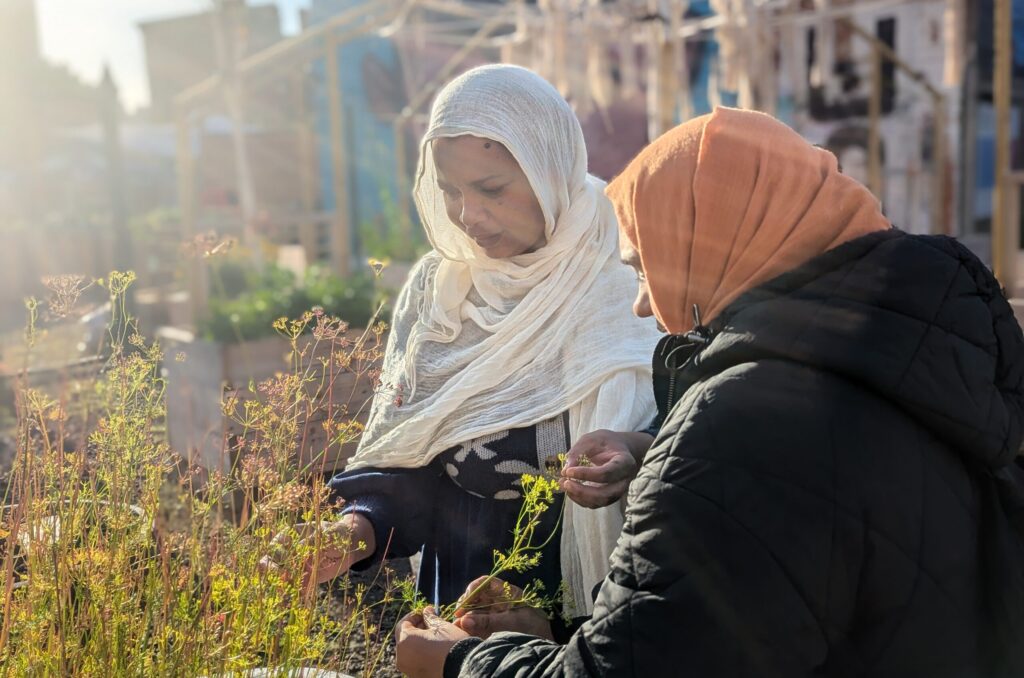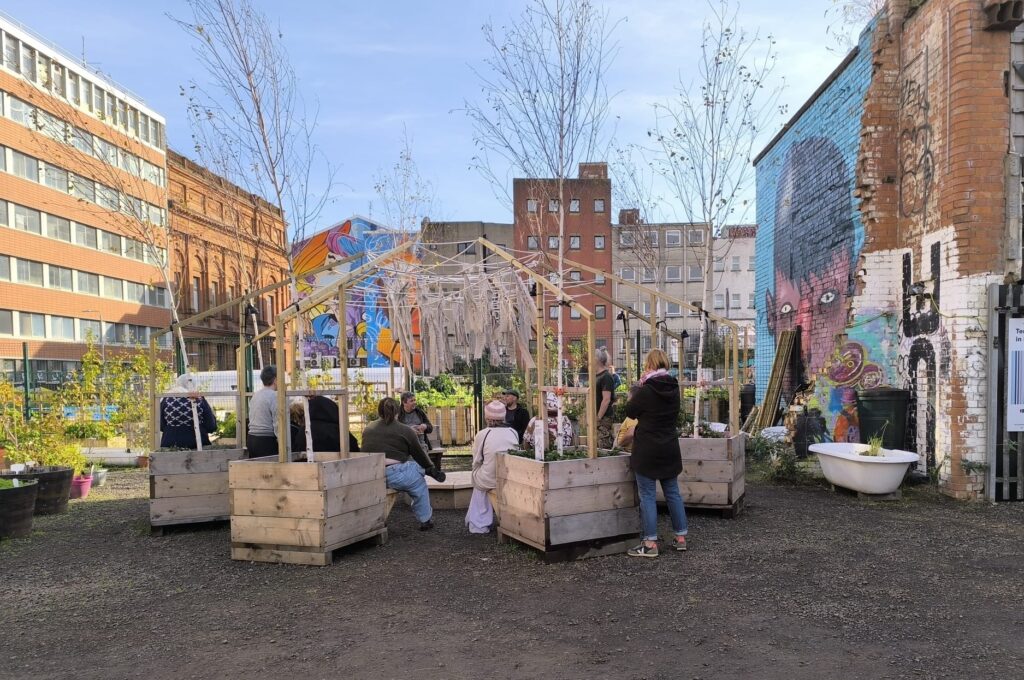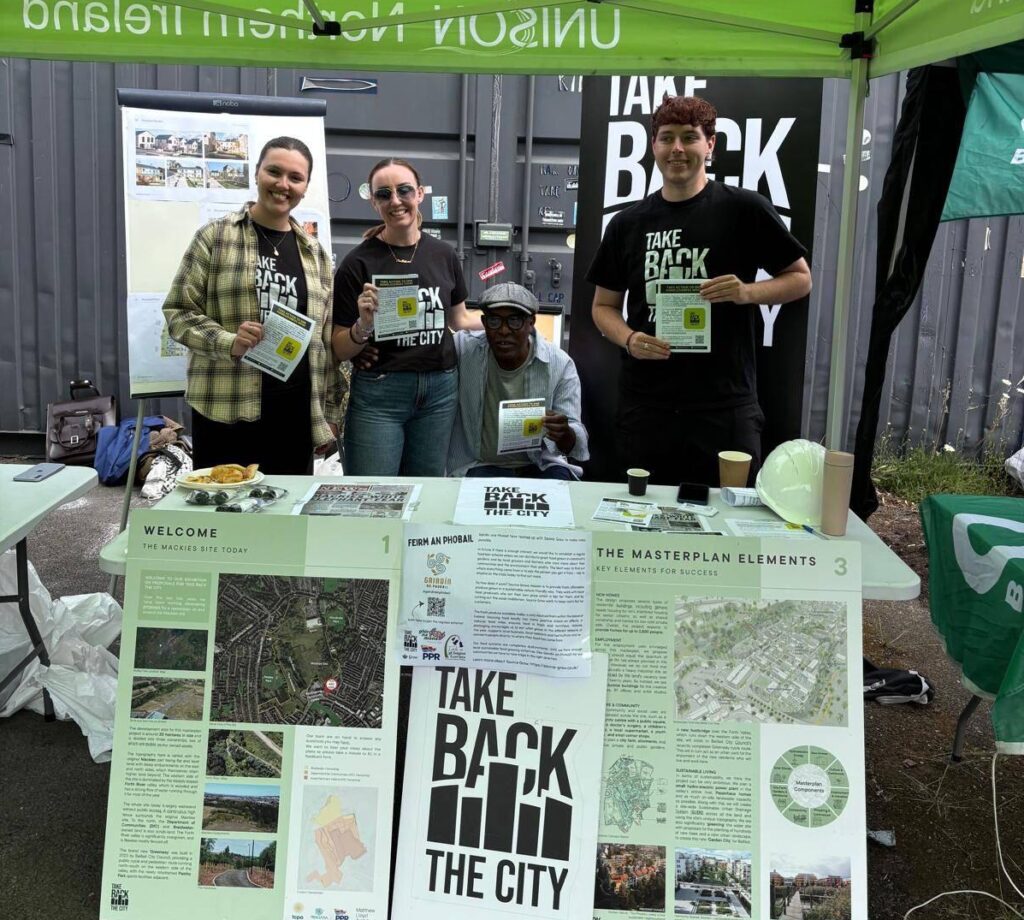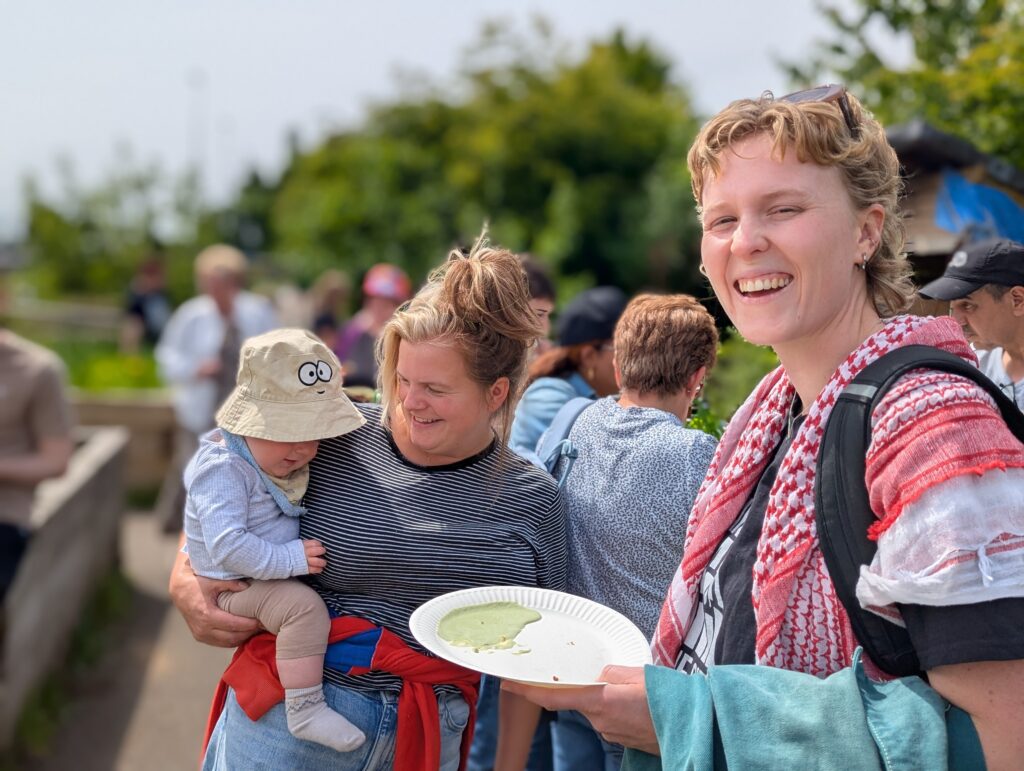In the 1980s, Belfast shared many of the problems seen in UK de-industrialized cities – lack of economic opportunity, crime and poverty. Simultaneously the city was badly damaged by The Troubles, an ethno-nationalist conflict, which saw the city physically divided according to ethno-religious identities, with conflict interfaces predominately in low-income neighborhoods.
The Good Friday Agreement (1998) effectively ended violence and reduced residential segregation, but neighborhood-level inequities continued, leading some to call Belfast a “twin-speed city.” Residents had a sense that local and central government were not effectively solving their problems and thus multiple strong and active community organizations sought to fill that gap.
There are multiple examples of community-led change in Belfast that have affected the city council’s approach to strategic planning. One organization that is partnering on this project, Participation and the Practice of Rights (PPR), a local, non-sectarian non-governmental organization, has spearheaded a range of economic, social and environmental justice campaigns. This included “Take Back the City,” which highlighted the lack of social housing in the city and the implications of growing income disparities.
Other communities across the city have led major environmental regeneration schemes, such as the Connswater Community Greenway, which combined physical infrastructure renewal (parkland, watercourses, footpaths/cycleways and a linear greenway) with community participation and programs. Passing through seven of the top 25% most deprived wards in Northern Ireland, the Greenway has been credited with bringing about dramatic change for residents’ health and wellbeing.
“We are fighting for land justice”
Part of the Change Stories research in Belfast involves a collaboration between students in Agustina Martire’s StreetSpace studio at Queens University Belfast (QUB) and our community-based partners, Practice and the Participation of Rights (PPR). In 2024-2025, the studio worked on addressing Northern Ireland’s housing crisis through design-led human-centred research. Specifically, students worked with PPR to design aspects of a potential housing development at the Mackie’s as part of the Take Back the City Campaign.
PPR has shown that failure to provide enough housing in Belfast is neither due to lack of funding nor lack of land, but rather it is lack of political will. Azadeh Sobout, Research Fellow in Planning at QUB, explains in the video below about PPR’s fight for land justice and the right to a future without children experiencing homelessness.
On the students’ work and the collaboration with PPR and QUB, David Brown, Senior Planner at Housing Executive NI said, “we’re already having conversations with PPR about how we can take this to the next level”.
Partners
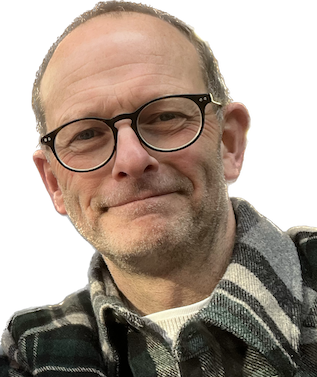
Geraint Ellis, Professor in the School of Natural and Built Environment at Queen’s University, Belfast. Ellis holds a doctorate in City and Regional Planning from Cardiff University (UK) and an MPhil in Environmental Planning from University of Reading (UK). His research interests lie in the broad field of spatial planning and sustainability, with a particular emphasis on environmental governance, renewable energy, marine spatial planning, environmental justice and equality issues in planning. Ellis is Editor of the Journal of Environmental Policy and Planning and Associate Editor of the Cities & Health journal. He is active in the Northern Ireland voluntary sector, having been a Board Director of Belfast Healthy Cities and currently Chairs a refugee support group and Whitehead Small World Group.
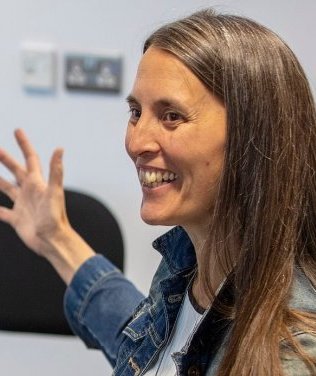
Agustina Martire, Senior Lecturer in the School of Natural and Built Environment at Queen’s University, Belfast in Northern Ireland. Martire has a PhD in Urban History from Technische Universiteit Delft (Netherlands) and a professional architecture qualification from Universidad de Buenos Aires. Her research focuses on street life, community engagement and urban regeneration. Martire advises a range of local NGOs including Participation and the Practice of Rights (PPR) and Northern Ireland Ministerial Advisory Group for Architecture and Built Environment; and is board member of Sailortown Regeneration and founding member of Belfast Cycling Campaign. She is the editor of the book: Everyday Streets, Inclusive approaches to understanding and designing streets, published by UCL Press in May 2023.
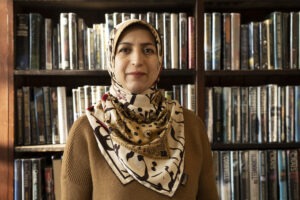
Azadeh Sobout is an interdisciplinary urbanist and researcher specialised in experimental and alternative urbanism, social movements organising, human rights campaigning and transitional justice. As a scholar activist, Azadeh is interested in disentangling the ways in which urban collective actions, ideas, and tools shape policy and activism. Currently based at Queen’s University Belfast, Azadeh works with local campaigners and communities to developing a framework for urban theorising from below, deeply rooted in contextual/situated knowledge linking theoretical and methodological approaches with practice. With a commitment to solidarity scholarship, a scholarship that seeks to create knowledge that can assist communities in political struggles, she has been leading a research project on the intersection of urban change and storytelling in Belfast. The project will facilitate theorising alternative forms of urbanism and urban regeneration through documenting and sharing everyday urban practices. With a focus on non-conventional urbanisms, continuous displacement and migration, spatial violence and housing justice, Azadeh’s writings have appeared in academic journals, magazines as well as on alternative websites.
Participation and the Practice of Rights (PPR) was formed in 2006 by Inez McCormack, a leading Irish Trade Unionist. PPR aims to translate international human rights standards into grassroots tools for economic, social and environmental change. It runs campaigns on rights to mental health, income, housing and digital resources, each supported by community and voluntary groups, politicians, activist networks, funders and international collaborators in Scotland, South Africa, USA, England and elsewhere.
Photo credit: Azadeh Sabout
In the center of Belfast, a group of artists and activists have come together to turn an abandoned space into a community garden. They have set an open fire for people to sit together and explore what it means to feed themselves in the face of climate crisis. Few days a week, community comes together planting, nurturing, harvesting and cooking food. They share knowledge, memories and recipes. They develop old and new skills, as they root around in the past and plan for future.
Photo credit: PPR
Gairdín an Phobail (the People’s Garden) is a playground for urban thinkers, do-ers and campaigners in Belfast. It brings together families, young people, artists and activists to develop creative responses to environmental injustice.
Making time for conversations of decolonization, community gardeners and growers explore food as a way of building and strengthening local autonomies. They share their food as part of their traditional ecological knowledge and are nurtured by the plant-based cuisines that are prepared by the Kind Economy chefs.
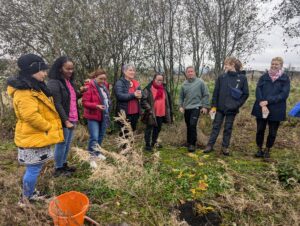
Photo credit: PPR
Meitheal is the Irish word for a work team and denotes the co-operative labour system in Ireland where groups of neighbors help each other in turn with farming work, such as harvesting crops. Neighbors who give their work to others are helped in turn with their own heavy seasonal tasks. To the heart of the concept is community unity through cooperative work and mutually reciprocal support.
Following months of consultation around the masterplan for a sustainable community on Mackie’s site in West Belfast, a collection of activists, organizers, architects, growers, community gardeners, students, people in housing stress, and dreamers visited the site. The idea of Al-Fikrah, as the Arabic-speaking campaigners say, is to occupy the land by starting to grow food on it and bringing the people together on the site while developing the idea of a community farm at the center of the master plan.
The campaigners explored the true meaning and spirit of Meitheal, solidarity economy, and land justice while rethinking the ways each can contribute to re-envisioning and re-building the site. Before they left, they planted an indigenous tree as a symbol of the beginning of the journey toward their vision for this land.
